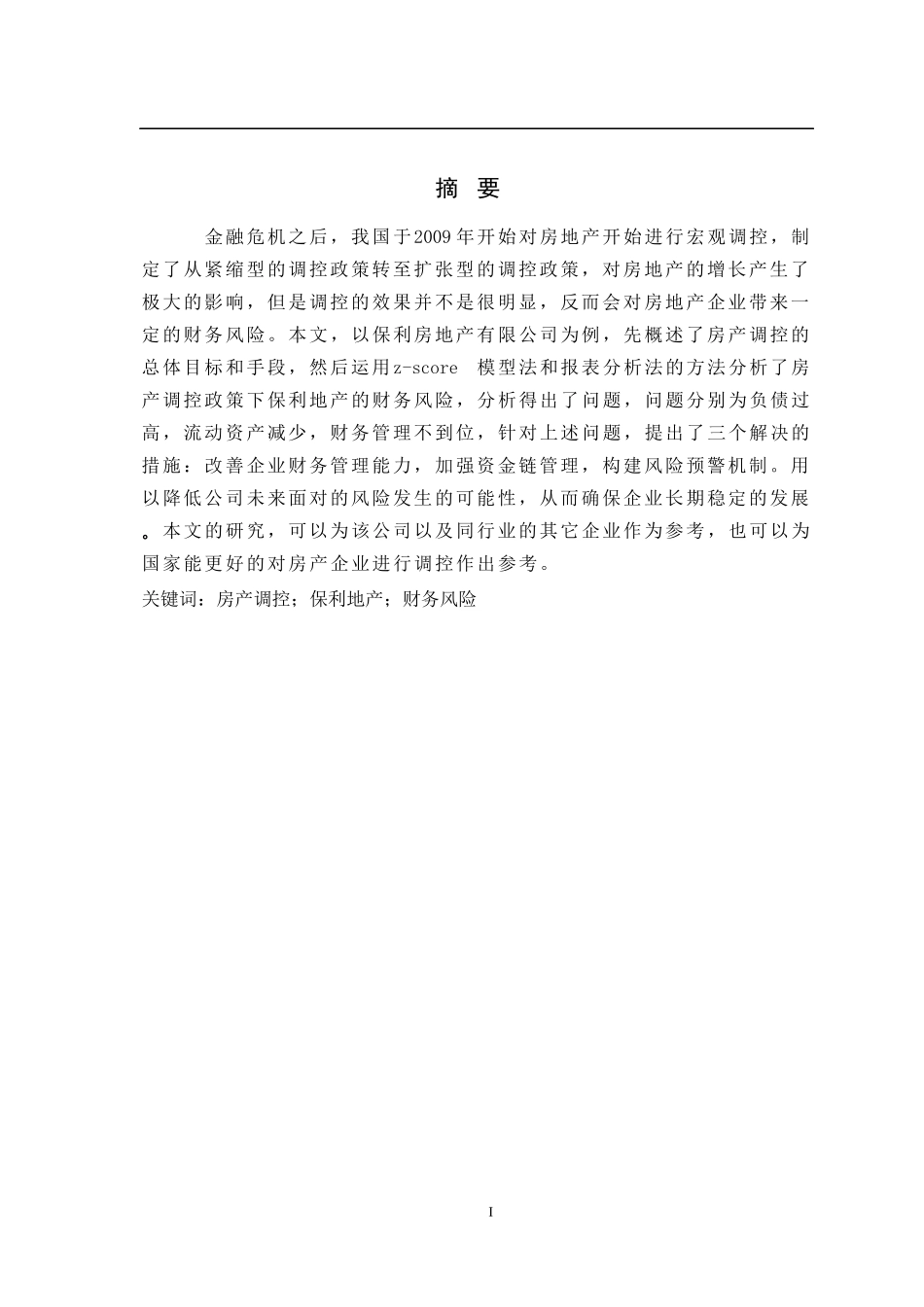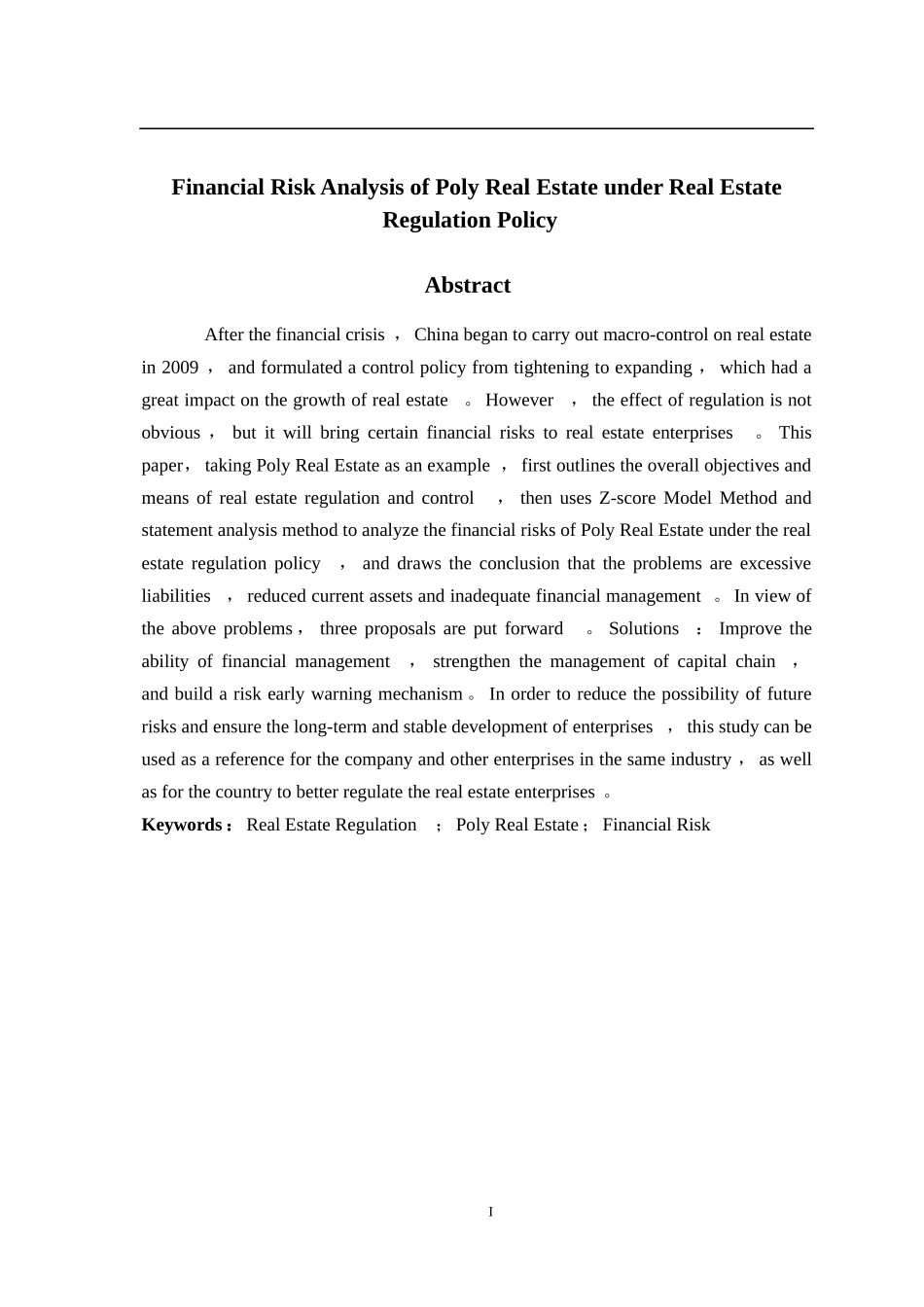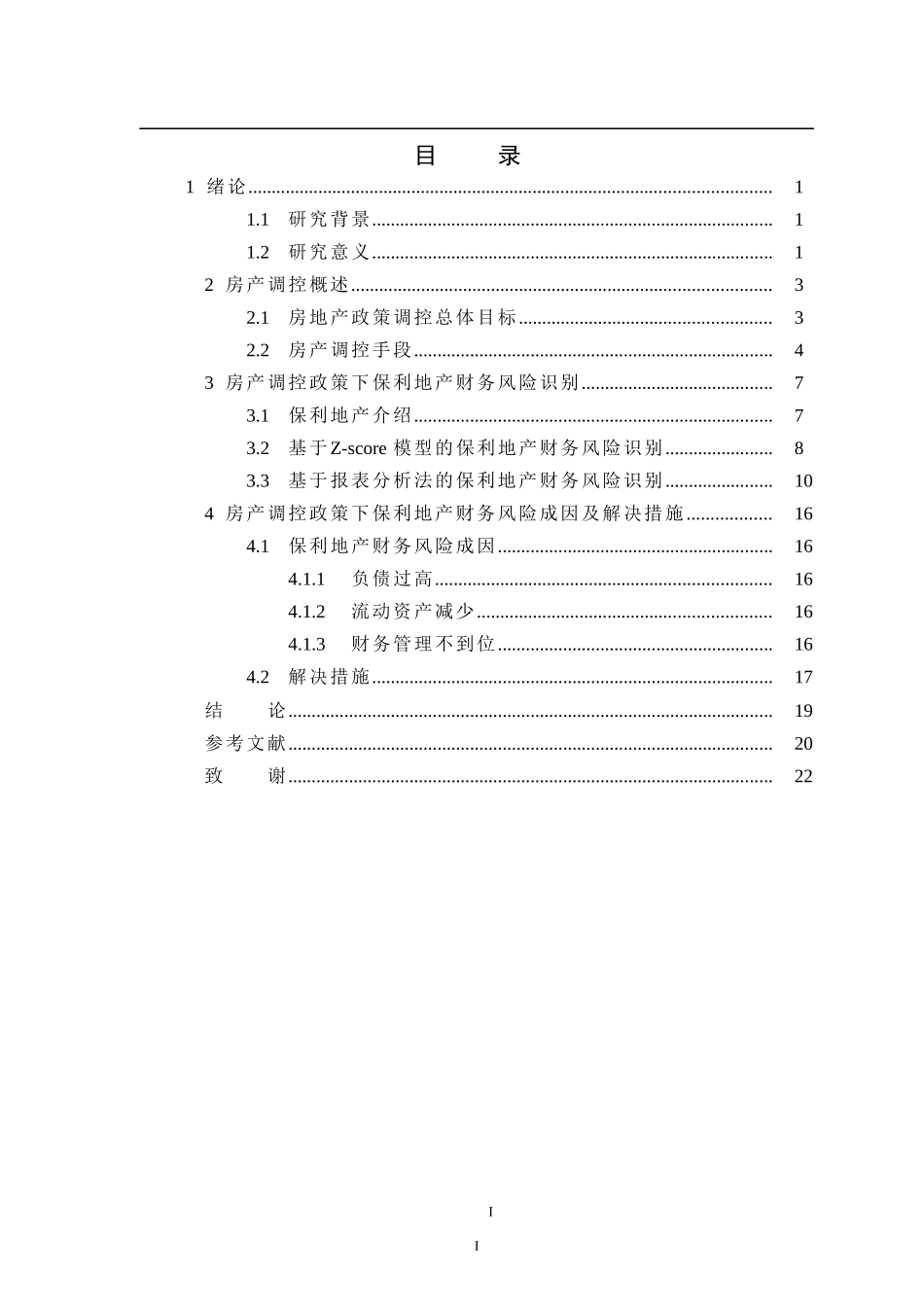摘 要金融危机之后,我国于2009 年开始对房地产开始进行宏观调控,制定了从紧缩型的调控政策转至扩张型的调控政策,对房地产的增长产生了极大的影响,但是调控的效果并不是很明显,反而会对房地产企业带来一定的财务风险。本文,以保利房地产有限公司为例,先概述了房产调控的总体目标和手段,然后运用z-score模型法和报表分析法的方法分析了房产调控政策下保利地产的财务风险,分析得出了问题,问题分别为负债过高,流动资产减少,财务管理不到位,针对上述问题,提出了三个解决的措施:改善企业财务管理能力,加强资金链管理,构建风险预警机制。用以降低公司未来面对的风险发生的可能性,从而确保企业长期稳定的发展。 本文的研究,可以为该公司以及同行业的其它企业作为参考,也可以为国家能更好的对房产企业进行调控作出参考。关键词:房产调控;保利地产;财务风险IIFinancial Risk Analysis of Poly Real Estate under Real Estate Regulation PolicyAbstractAfter the financial crisis ,China began to carry out macro-control on real estate in 2009 , and formulated a control policy from tightening to expanding , which had a great impact on the growth of real estate。 However, the effect of regulation is not obvious , but it will bring certain financial risks to real estate enterprises。 This paper,taking Poly Real Estate as an example ,first outlines the overall objectives and means of real estate regulation and control, then uses Z-score Model Method and statement analysis method to analyze the financial risks of Poly Real Estate under the real estate regulation policy, and draws the conclusion that the problems are excessive liabilities, reduced current assets and inadequate financial management 。 In view of the above problems , three proposals are put forward。 Solutions: Improve the ability of financial management, strengthen the management of capital chain, and build a risk early warning mechanism 。 In order to reduce the possibility of f...


